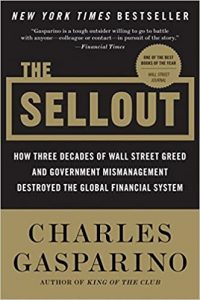Southridge Hedgie Hicks Shrugs Off Regulators Investor Fraud Suits
Teri Buhl, 26 October 2010
Stephen Hicks and his Ridgefield, CT hedge fund, Southridge Capital, were sued yesterday for multiple securities violations by the SEC and the Connecticut Banking Commissioner in Connecticut state and federal courts. Howard Pitkin, head of the CT Department of Banking, has been after Hicks for investor fraud and abuse in its broker dealer business since 2007.
Hicks is fight back- after being ordered to comply with a subpoena from the Banking Commission, Southridge then appealed to the Connecticut Supreme Court but Pitken eventually won the right to review the funds internal records. Pitkin had originally filed a cease and desist order against the broker dealer side of the hedge funds business. Now he wants to shut the whole Southridge opperation down. Continue reading “Article: Southridge Hedgie Hicks Shrugs Off Regulators Investor Fraud Suits”

